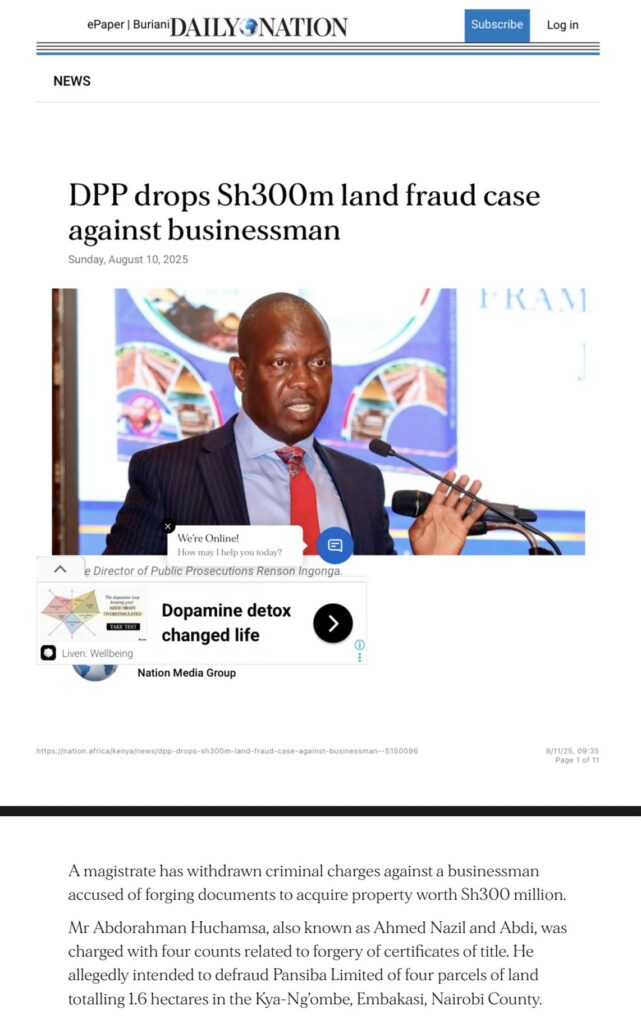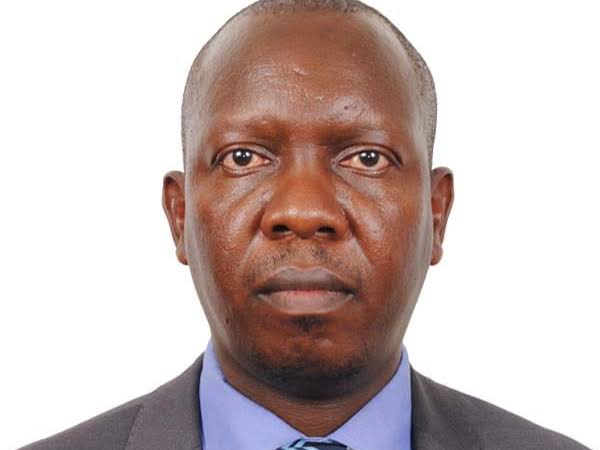Kenya’s Director of Public Prosecutions, Renson Ingonga, is once again in the spotlight for his decision to drop serious criminal charges.
On August 10, 2025, a magistrate court withdrew a Sh300 million land fraud case against businessman Abdorahman Huchamsa, also known as Ahmed Nazil and Abdi.
Huchamsa was accused of forging title deeds to illegally acquire four parcels of land totaling 1.6 hectares in Kya-Ng’ombe, Embakasi.
These parcels belonged to Pansiba Limited, a company that had bought them legitimately in 2017 and used them until 2021 when a bank tried to auction part of the property.
The alleged forgery dates back to 2006 but was discovered when Huchamsa amalgamated the plots and claimed ownership, prompting Pansiba to involve the Directorate of Criminal Investigations.
Ingonga’s office applied to withdraw the criminal trial, suggesting the matter should instead be handled in the Environment and Lands Court.
Magistrate Geoffrey Onsarigo allowed the withdrawal, citing the DPP’s constitutional powers. Huchamsa was discharged, and his travel documents and bail were returned.
Pansiba Limited, however, is challenging the decision in the High Court, arguing that the evidence was strong enough for a conviction and that forgery should not be reduced to a land ownership dispute.
This is not the first time Ingonga has made such a move. On July 22, 2025, he dropped a Sh342 million graft case against former University of Nairobi Council chairperson Prof Amukowa Anangwe.
In May 2025, murder charges against senior police officers linked to killings during operations were also withdrawn.

There was an attempt to end a Sh7.6 billion fraud case against oil trader Yagnesh Devani, but the court blocked it.
A Sh706 million fraud case against officials of a transport company faced the same fate on July 29, 2025, but was also rejected by the court.
Leaked documents from his office have shown patterns in how such cases are halted, raising questions about fairness and accountability.
In recent months, Kenya has witnessed large anti-government protests demanding an end to corruption and better governance.
During the height of the unrest in June and July 2025, Ingonga was active in prosecuting protesters, some with terrorism charges. He defended his actions as independent, but critics saw it as a way to silence dissent.
After the protests, he seemed to step away from public attention before resurfacing with a series of case withdrawals involving influential figures.
Francis Gaitho and other commentators have pointed out that Ingonga appears to treat these withdrawals as routine, describing it as corruption and abuse of office.
They accuse his office of acting like an extension of State House rather than a defender of justice. With the High Court now set to review the Pansiba case, many Kenyans believe this is a test of whether justice can prevail over political and financial influence.
If Ingonga continues to pull back on prosecuting high-profile fraud and corruption cases, calls for reforms or even his removal may grow louder. The public expects the DPP to protect the law for everyone, not just the well-connected.





















Add Comment